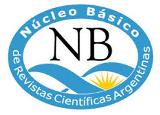New problems, trends and challenges in the historiography of the Portuguese-Brazilian world
Comparisons with Argentine historiography
DOI:
https://doi.org/10.24215/23139048e034Keywords:
trends, Empire, connectivity, agents, interactionsAbstract
The general objective of the following dossier is to present some of the new trends and challenges that frame the development of the historiography of the Portuguese-Brazilian and Hispanic world, composing it in relation to its own contributions on the study of Portuguese immigrants in the space of the Río de La Plata. In this regard, the conferences offered in the framework of the SePIHEA (Seminario Permanente de Investigación Histórica Europamérica) offered in the Academia Nacional de la Historia de la República Argentina.
Downloads
References
Elliott, J. H. (2012). El Atlántico español y el Atlántico luso: divergencias y convergencias. Gran Canaria: Publicaciones del Cabildo de Gran Canaria año 2014.
Gruzinski, S. (2010). Las cuatro partes del mundo. Historia de una Mundialización. México: Fondo de Cultura Económica.
Hausberger, B. (2018). Historia mínima de la Globalización Temprana. México: El Colegio de México, Centro de Estudios Históricos.
Subrahmanyam, S. (2006). Sobre comparaciones y conexiones: notas sobre el estudio de los imperios ibéricos de Ultramar, 1490-1640. En A. Feros Carrasco y R. Chartier (Coords.), Europa, América y el mundo: tiempos históricos (pp. 239-262). Madrid: Marcial Pons.
Published
How to Cite
Issue
Section
License
Copyright (c) 2020 Pereyra, Osvaldo Víctor; Rodríguez Otero, Mariano Eloy

This work is licensed under a Creative Commons Attribution-NonCommercial-ShareAlike 4.0 International License.
The acceptance of an original by the journal implies the non-exclusive transfer of the economic rights of the authors in favor of the editor, who allows reuse, after editing (postprint), under a Creative Commons Attribution License -NonCommercial-ShareAlike 4.0 International (CC BY-NC-SA 4.0)
In accordance with these terms, the material can be shared (copied and redistributed in any medium or format) and adapted (remixed, transformed and created from the material another work), provided that a) the authorship and original source of its publication (magazine and URL of the work), b) is not used for commercial purposes and c) the same license terms are maintained.
The transfer of non-exclusive rights implies that after its publication (postprint) in Cuadernos de H ideas the authors can publish their work in any language, medium and format; in such cases, it is requested that it be stated that the material was originally published in this journal.
Such assignment also implies the authorization of the authors for the work to be harvested by SEDICI, the institutional repository of the National University of La Plata, and be disseminated in the databases that the editorial team considers appropriate for increase the visibility of the publication and its authors.
Likewise, the journal encourages the authors so that after their publication in Cuadernos de H ideas they deposit their productions in other institutional and thematic repositories, under the principle that offering society scientific and academic production without restrictions contributes to a greater exchange of global knowledge.










.png)

























